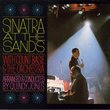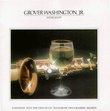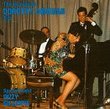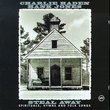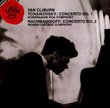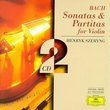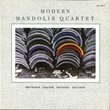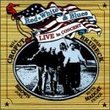| All Artists: Dave Holland Title: Conference of the Birds Members Wishing: 7 Total Copies: 0 Label: ECM Records Release Date: 6/14/1994 Genres: International Music, Jazz, Pop Styles: Europe, Britain & Ireland, Avant Garde & Free Jazz, Modern Postbebop, Bebop Number of Discs: 1 SwapaCD Credits: 1 UPCs: 042282937322, 0042282937322, 781182102729 |
Search - Dave Holland :: Conference of the Birds
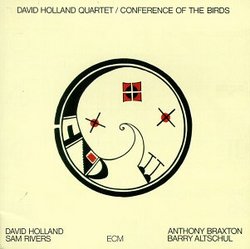 | Dave Holland Conference of the Birds Genres: International Music, Jazz, Pop
In the early '70s, bassist Dave Holland and drummer Barry Altschul had a well-deserved reputation as the most fluently creative rhythm section in free jazz. Two of the groups they worked with regularly were those of Sam Ri... more » |
Larger Image |
CD DetailsSynopsis
Amazon.com In the early '70s, bassist Dave Holland and drummer Barry Altschul had a well-deserved reputation as the most fluently creative rhythm section in free jazz. Two of the groups they worked with regularly were those of Sam Rivers and Anthony Braxton. It was Holland's inspiration to pair the two in this 1972 quartet, when Rivers and Braxton represented two distinct generations of the avant-garde, the former generating explosive, driven tenor lines filled with honks and cries and the latter creating oblique postmodern solos on a variety of reeds. It was a brilliant idea, and the results are one of the essential jazz recordings of the'70s. Holland's compositions include boppish, Ornette-inspired lines and strong melodies that provide cool and varied frames for improvisation. That Rivers and Braxton are among the finest flutists in jazz is just one of the treats, while Holland is one of the great bassists. Altschul's scintillating drumming completes a quartet with some of the quickest reflexes in improvised music. --Stuart Broomer Similarly Requested CDs
|
CD ReviewsIn Search of Excellence A. Davis | Greenville, SC | 02/06/2001 (5 out of 5 stars) "After watching the Ken Burns Jazz Series last month, I went back to the period that came up short in the programming - the 70's - 80's. The series ran a theme that Jazz had died in the 70's. As a teenager who discovered "Conference of The Birds" during this time, I had to disagree with the critics. Jazz did not die, it evolved. This recording is a beautiful classic example of that evolution. That evolution is still going on today, in 2001. Listen to this CD and then follow it by playing Holland's latest recording "Prime Directive." Dave is still evolving and spinning out classics. No other Bassist/Composer that I have heard in the last 25 years spins out more intriguing music than Holland. His Bass playing is crystal clear and very strong, while his compositions are structually complete. He always works with first-rate artists who are continuously challenged, and they respond in kind by taking the compositions to their highest level. "Conference of The Birds" is one of the most beautiful compositions that I have ever heard. From the 70's to 2001 - Holland is still evolving as an artist. Keep up the excellent work Dave. As long as Cats like you are around, Jazz is in good hands." Exquisite, delicate, shimmering with austere beauty Ricard Giner (cootie@cootiesjazz.co | Brighton, UK | 08/27/2001 (5 out of 5 stars) "This is not an ordinary record in any respect. Free jazz and the 1960s avant-garde had ironically generated its own conventions. Conference of the Birds ignores them and sets up its own outstanding performance standards for both individual voices and ensemble. The compositions are all Holland's, inspired by the dawn chorus outside his flat in London in the early summer mornings. The first theme, "Four Winds" is a delightful opener, marked by Holland's characteristic firm, precise fingering. The bass immediately sets the atmosphere of the record: a light, free dance of notes. Holland's bouncing fingering sharply contrasts with Barry Altschul's fizzing cymbals. Sam Rivers and Anthony Braxton converse almost indistinguishably, politely exchanging commentary. On "Q & A" Altschul converses with himself, quietly alerting his companions, who gradually make their appearance with little interjections. These fragments progressively accumulate to form a kind of dance of free individuals, like birds pecking at grain, each jumping according to its own whim, chasing its morsel. Then, the title-tune, "Conference of the Birds". It's one of the great compositions of jazz, perhaps the most distinctive and memorable 1970s original (in retrospect, an accolade it should probably share with Weather Report's "Birdland", released four years later). It is a delicate, contemplative song to beauty and quietude, both melancholy and uplifting, evocative of both aching loneliness and the intimacy of companionship. Holland's double bass figure must be one of his most celebrated. Altschul's marimba is divine in its simplicity, accompanied by the plain, unadorned flutes of Braxton and Rivers. "Conference of the Birds" is almost like the calm before the storm ? the track that follows it, "Interception", is a wild, intense vehicle for each soloist to give free rein to his passions. This is followed by "Now Here (Nowhere)", the most spacious of all six pieces. It offers a cautious reconciliation to dissenting voices after "Interception", underscored with the ubiquitous bass. Holland cultivates a tone here honed into a ovoid, sculpted sound with a hint of vibrato. Finally, on "See-Saw", we have Altschul again creating a effervescent ambience to a blistering Rivers solo. This is the final climax to an awesome, astonishing album, one of the great classics of the post- free era." The Best Argument for "Free Jazz" D. J. Sapen | 03/17/2002 (5 out of 5 stars) "Dave Holland has developed his ensemble writing and arranging beautifully and consistently over the years. Any one of his albums can be recommended without reservation, from solo bass and cello, on to his duets with Rivers and Steve Coleman. His recent big band builds upon his greatest strengths while creating a powerful democratic ensemble for the expressions of some of today's best players. Holland's two greatest strengths are good taste and and a consistent imagination for what sounds good, regardless of complexity and virtuosic playing. OK, that's three. Hard to stop. This album, the genesis of Dave Holland as leader, was a youthful work, with all the implications of that word (for a delicious cross section, try the Circle-Paris Concert, consider the trios with Corea and Altschul, consider projects with Braxton and Wheeler and bathe in the rich ensembles of the 80's forward).
While you can spend a jazz-life marveling at the virtuosity and sonic beauty of his playing, the most delightful thing about this album, for me, besides the Dionysian spirit of the free-time passages and the brilliant interplay of Sam Rivers and Anthony Braxton, two very different but synergistic wind players, is the perennial Holland ability to write tunes that are playful and catchy at the same time that they are diving boards for the most unfettered but inspired improvisations. That's right, catchy. And somtimes, as in the title tune, modest and beautiful. Every piece is a smile-inducing surprise, as long as one has no aversion or knee-jerk dismissal of "free" playing. One can listen to "Four Winds", in its constantly shifting accents and meter, then skip to the next decade's "Homecoming" on "Seeds of Time" straight on through to the present and hear what, in my pretty full experience, is non-pareil - dauntingly tricky tunes that maintain a playful catchiness, so much so that the casual listener will never have to know that time signatures are all over the map - the listening is as challenging and enjoyable as the best Bartok or Stravinsky, but they swing and you can hum them while driving. Then the ensemble - though I am partial to the band with Kenny Wheeler and Julian Priester, Holland is the Mr. Spock of the musical mind-meld with his drummer, as well as the ego-less complement to his soloists and unerring counter-pointer in his band arrangements. drummers Barry Altschul, staccato, driven and precise; and Jack DeJohnette, flowing, utterly free in the range of dynamics and locked into a pulse that allows him utter virtuosity such that the time signature disappears and re-emerges as if by magic, could not be more different. Holland sounds like a twin of each, DeJohnette a prolific partner in countless contexts over the years. Here, it is Altschul playing with such energy and obvious fun that one cannot fail to smile at his most spontaneous inventions, nor tap one's foot to his swing. Oh yeah, this "free" music is my favorite example of how swing can breathe in the absence of conventional rhythm. Rivers is a revelation here, though his Blue Note recordings of the 60's were up there with the work of his more famous contempories. To this day he is a neglected paradigm unto himself, a wind-master whose re-emergence as a recording artist should not be missed; nearing 80 now, he is as hip then as any young cat, with a wisdom of the years and the chops of a prime genius. Braxton - also a paradigm unto himself, is at many points in his career indecipherable and seemingly intentionally subversive of the basics of playing a horn and respecting a tune - yet he can at best be riveting. Here, he is inspired, and in a rewarding partnership that, 30 years ago, may represent his most sympathetic context in which to sound out his spirit. Holland's playing is wonderful to the ear and to his bandmates, as described. Important to aficionados of technique, dave's playing doesn't sacrifice the visceral WEIGHT of the bass sound, the way so many post-LaFaro players do. Holland works his magic, at any speed, at any level of spontaneous invention or complexity, with a rich, consistent and controlled technique and sound that does honor to Mingus, and that I dare say would have made the fiery taskmaster smile proudly. This album, along with Ornette Coleman's "Change of the Century" and Coltrane's "A Love Supreme" or "Meditations" is essential for anyone wanting to venture beyond the mainstream and have both a sturdy bridge to the tougher terrain and a reference standard for how the bravely avant-garde ("advance-guard", reconnaissance into uncharted teritory) should sound." |

 Track Listings (6) - Disc #1
Track Listings (6) - Disc #1